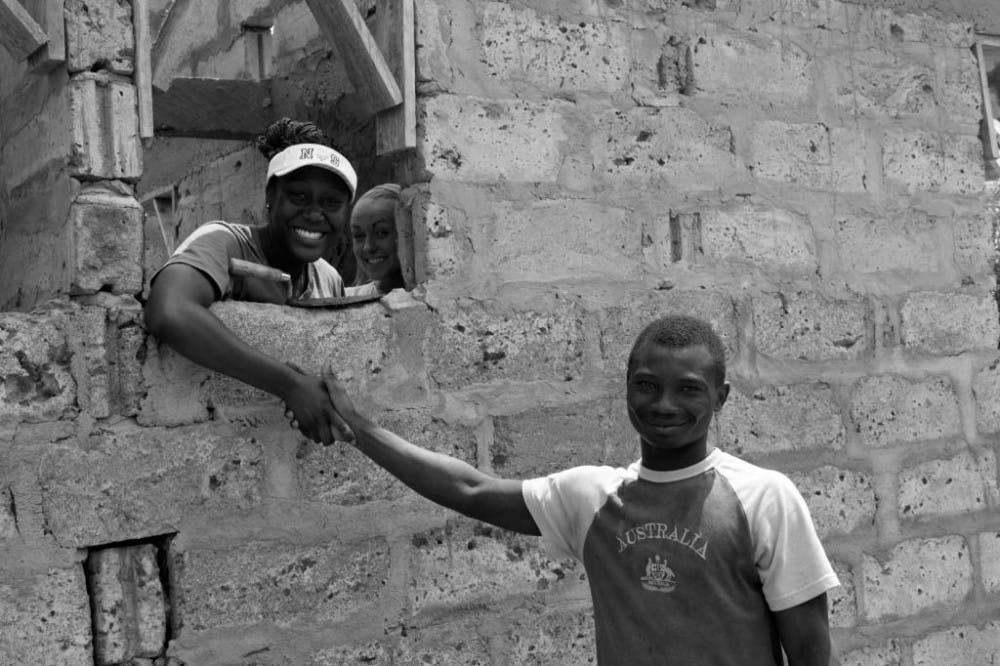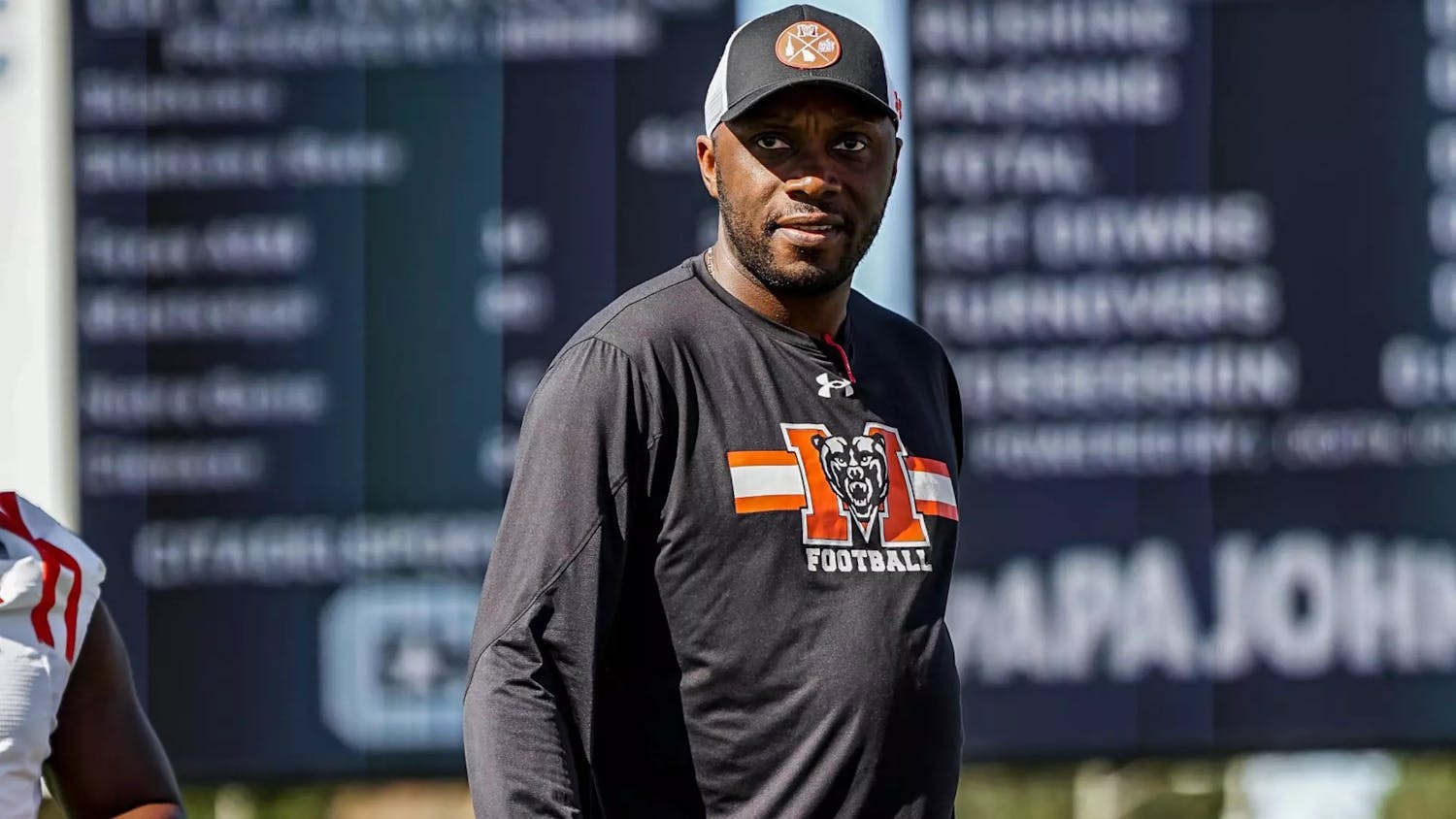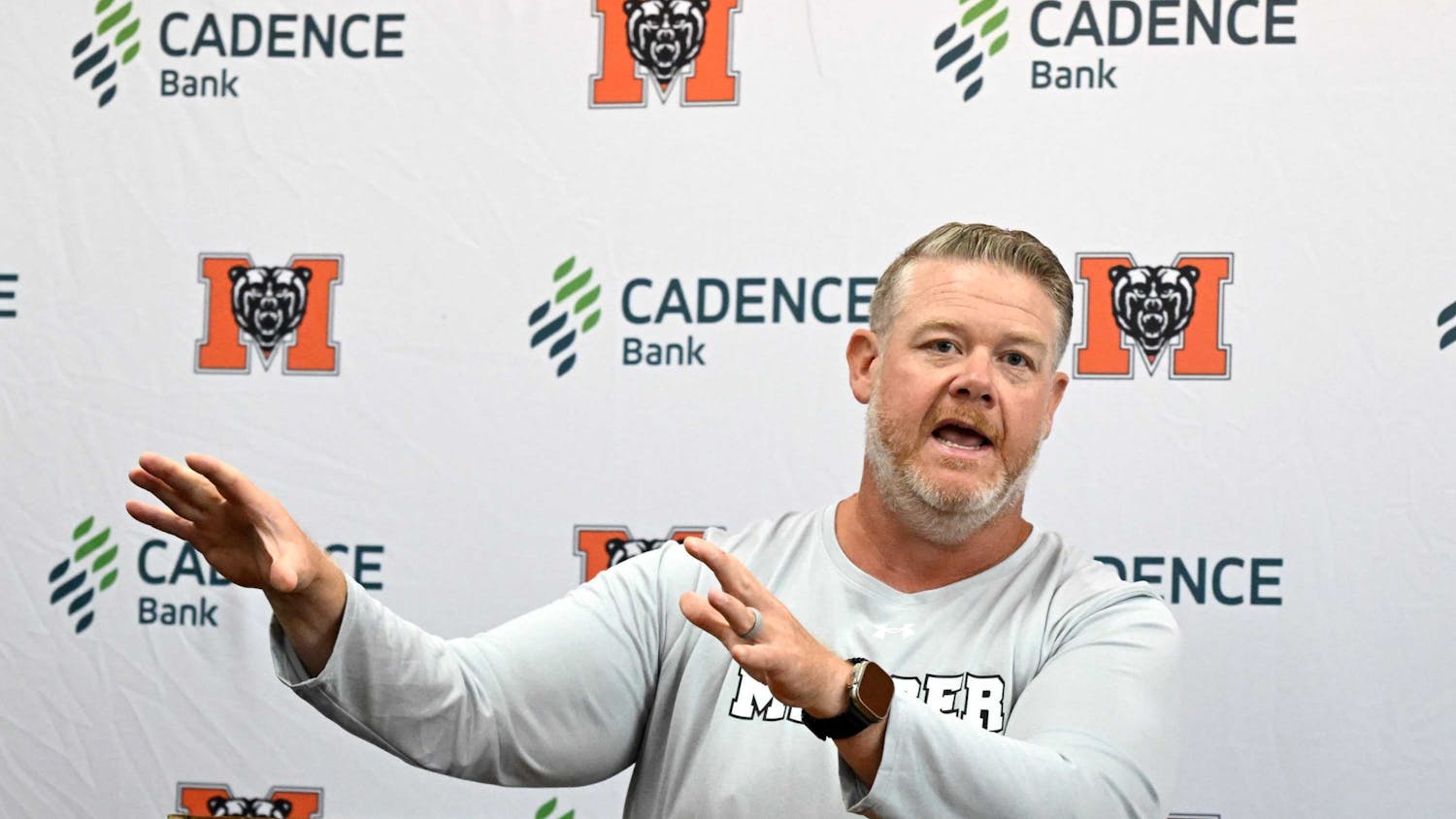An NCAA rule allows university athletic teams to take 10 extra days of practice should they take a foreign tour.
“In all honesty I was being selfish; I wanted ten extra practice days this summer,” said women’s basketball head coach, Susie Gardner. “When we got to Ghana, I realized this is so much bigger than basketball.”
The Mercer women’s basketball team, in collaboration with Mercer on Mission, performed community service in Ghana for three weeks. Mercer on Mission was able to get the student’s scholarships to cover most of the trip, and Mercer Athletics covered the remainder.
The team served one week in the capital city, Accra, hosting basketball camps for girls and boys. Dynasty Basketball Association, a local non-profit youth development organization facilitated the camp.
While working with the camps, the team met the director of Developing Unity Nurturing Knowledge (DUNK). DUNK is a basketball program specifically geared toward under-privileged Ghanaian children.
“[They had] no shoes, no balls, no anything,” said junior Alicia Williams. “We ended up donating all of our basketballs and [athletic] clothes to DUNK.”
According to Williams, DUNK only needed the equivalent of $20 to purchase a new basketball goal for another basketball organization. The team was easily able to collect the money from their own pockets.
When the team wasn’t busy teaching campers, they played a couple of games against professional Ghanaian teams.
“The kids from DUNK and Dynasty came to both games,” said Williams. “The kids from the camp would cheer and would try their best to cheer on the team, yelling ‘Mare-sar!’ repeatedly.”
The team canceled their third game of the week after they won the first two games by more than 80 points.
The team spent their remaining two weeks of service in the townships of Dodowa and Agomeda. Along with Mercer on Mission and the Fuller Center for Housing, the women helped in the construction of four houses.
“You travel through Ghana, you can’t go 50 yards without seeing an unfinished house. [Ghanaians] don’t take out loans, so if they run out of cash, the houses just sit there until they get more cash.”
“We had a three hour ride from Accra to Dodowa. We were rolling up and a lot of us had fallen asleep and we wake up and see all these people and drums and dancing and cheering. They were so excited that we were there,” said Williams.
“They had a parade for us, they were beating drums, they were blowing the horns, the whole side of the road was lined with the locals,” said Gardner.
The townspeople followed them from the stopped bus about a quarter mile to the church where a welcoming ceremony took place.
The team stayed the night in Dodowa and commuted 25 minutes via bus to the construction sites in Agomeda.
The women were supervised by local Ghanaian craftsmen, but did a majority of the grunt work of the construction of the concrete houses. They retrieved water for concrete, mixed mortar, laid bricks, and plastered the finished walls of the houses.
“I wanted them to try every task that there was. They found out what their strengths were,” said Gardner. “We heard the word ‘Level!’ ‘Mortar!’ ‘I need a block!’” said Gardner.
According to Gardner the conditions of the campsite were primitive. The houses were isolated from the community because the property was donated.
“There was no electricity, we had to get water from a well with a string and bucket,” said Gardner. “[The bricks] were piled up on the ground maybe 30, 40 yards away from the houses.”
The players loaded the bricks from their resting place and wheel barrowed them, uphill, to the masons working on the houses.
“We worked hard, 9 a.m. to 3 p.m. everyday,” said Gardner.
Alicia Williams’ preferred job was plastering.
“We took a scoop of it and threw it on the wall and it’d just fall off; the people who had been doing it for years would do the same things and make it stay,” said Williams.
Williams did say that she got better over the course of construction period.
Both Gardner and Williams said the families whose houses they were building were thankful for the assistance.
“It’s hard to put into words how wonderful of a trip it was,” said Gardner. “We were all touched and moved greatly.”
Women's Basketball helps in Ghana

Photo courtesy Burgess Brown




